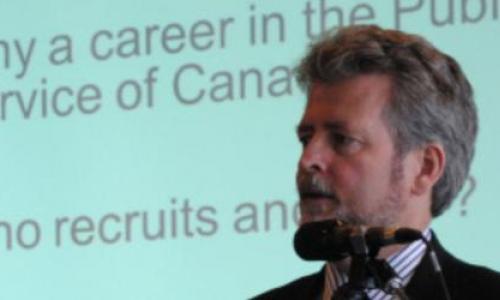
Interviews are challenging yet predictable. You know that you will be asked a series of questions so that the employer can get to know you better and determine if you are a good fit for their position. There is a wide range of interview questions and interview types. Here are ten tips to answer questions effectively.
1. Consider the Employer's Perspective: Why are they asking the question?
- What are they looking for? What is the real intent behind the question?
- What qualities, skills and experiences can you infer are important to them from the question? Are the skills the same as those listed on the job description?
- What are hot topics or concerns in their field?
- What past challenges might they have had in their organization or with previous employees?
- Who is asking the question? The owner, manager, or a colleague?
2. Listen to Ensure That You Understand the Question and Can Answer Effectively
Listening well is an art that involves good eye contact, body language, and other nonverbal cues. Don't simply wait for your turn to talk: Pay attention to what is being said. You may well be provided with valuable tips to formulate effective responses to the questions. Never interrupt.
- Demonstrate to the employer the strength of your listening skills and ability to respond to their inquires and follow directions.
- If necessary, repeat or paraphrase the question to ensure you understood it. Conversely, after your answer, consider asking ‘did that answer your question?'
- If you do not address the specifics in your answer, they will likely be left with the impression that you didn't listen well, didn't understand the question, or really didn't care to impress them. None of these is a positive impression to leave behind.

3. Provide a Concise and Complete Responses
- Take the time to formulate your response. A moment of silence to collect your thoughts is acceptable.
- Start with a strong, positive opener.
- Include key critical points. Be concise, direct and confident.
- Provide an adequate amount of detail.
- In answering a question with multiple components, section it off to ensure you address each point. For example, you might say "First, I would…"
- In complex answers, provide a concise summary/wrap up.
4. Prove Your Experience with Examples and Factual Statements
- Share a wide range of your experiences — work, volunteer, academic, community, etc.
- Convince the employer that you have the skills that they are looking for or the ability to transfer your skills into the new environment.
- Select examples that highlight key skills that directly relate to the position.
5. Ensure That You Optimize Your Transferable Skills
It is very likely that you won't have all the skills desired for the position, as most candidates are looking for a position with new challenges. Therefore you must convince the employer that you have:
- Potential to do the job well
- Ability to transfer knowledge from one situation to another
- Ability to learn quickly, independently and efficiently from previous experience.
6. Volunteer Key Information About Yourself
You don't necessarily need to wait for an employer to ask about a specific experience or skillset. If you think it's something your interviewer will want to hear about, find a way to work it in.
7. Demonstrate Your Knowledge About the Organization and Interest in the Position
Take the opportunity during the interview to share what you have gained through your research, your knowledge of the industry, and especially your interest in the position.
- Express your interest verbally through the words that you choose and in your actions.
- If you don't find opportunities to work this in during the interview, address it at the end when you are given the opportunity to speak (e.g. when asked if you have any questions).
8. Respond Positively to Questions
It is important to frame your responses positively to an employer. This can be challenging when asked a question that you do not have an answer for, or when asked about skills and experiences that you don't yet have.
- If you are asked a question you know nothing about, you could respond with "what a great question, let me think about that...' You can do this once in an interview, more than that and you will look unprepared.
- You can prepare yourself in advance by anticipating these types of questions and learning techniques to respond positively.
9. Show Interest and Not Desperation
An employer won't believe you're worthy until you believe it. Do some self-reflection and become convinced that you're the best person for the job - then simply tell the employer!
10. Honesty is the Best Policy
While this may seem obvious, stretching the truth might cost you more than the job you're being interviewed for. Professional communities can be small, and many hiring managers interact with their counterparts through associations and clubs. If your name comes up as someone who was less than honest, it could damage your career before it starts.














